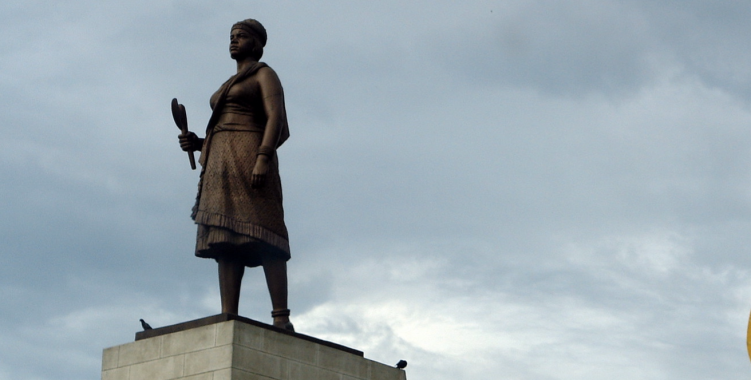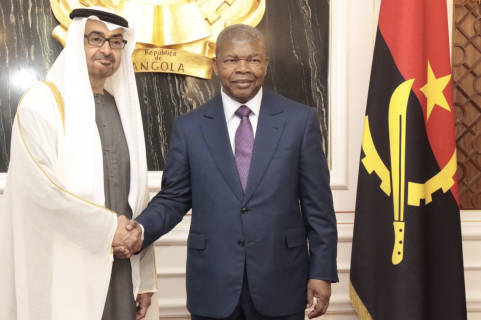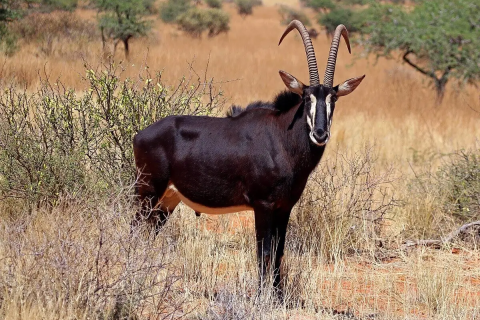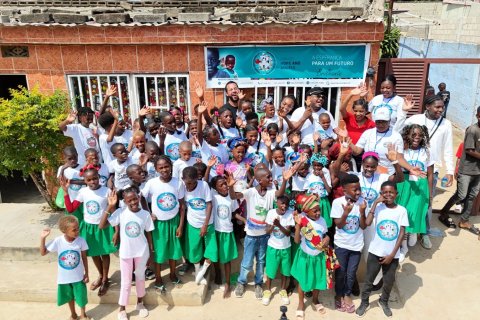In the petition he launched three days ago through the Change.Org platform, the Angolan actor and producer says that Netflix (streaming platform) has shown no interest in African PALOP content, nor in the film produced in 2013 on the subject (Njinga, Queen of Angola), and is now preparing a documentary without Angola benefiting from it.
"It is not being filmed in Angola, nor is there a technical team and Angolan actors, we find this repugnant and bordering on cultural usurpation for personal gain, where they tell our story from their point of view and often distorting the true facts," reads the petition, continuing: "if they are going to tell our story, let us be an integral part of the process and respected at all levels, enough of using our cultural identity for the elevation of others".
In three days, the petition surpassed 12,000 signatures and the theme has generated controversy among Internet users in social networks, with some defending the actor's position, including public figures such as the businesswoman Isabel dos Santos or the actress and model Lesliana Pereira, but also some critics such as the journalist and coordinator of the radio program "Conversa à Sombra da Mulemba", Raimundo Salvador.
In declarations to Lusa, Sílvio Nascimento underlines that what he wanted was to call attention to Angolan culture and to the lack of investment in national production.
"We have a patronage law that does not work and we have several professionals in the area, at the production level that live at the mercy of their luck, because national production is devalued," he said, admitting that the way he expressed himself has given rise to misinterpretations.
"The intention is not to prevent Netflix from making an international, historical product, it is to ask - hence this is a petition - that when this is done (...) why not count on national producers, since we are in a moment of empowering the African. It's a matter of inclusion," he commented, noting that Jada Pinkett Smith, the producer of the documentary is also of African descent.
Asked why he considers this a possible cultural usurpation, he replied that it is a story told in a "different" way, by third parties who gain for their own benefit: "we are scalded cats".
Sílvio Nascimento defends, on the other hand, that Angolan authors, scholars and cultural producers should be included in this type of productions, suggesting that the objective is to "open a debate on the theme", including the creation of quotas for professionals from a certain country.
"What I want to say is: come make (films), make many, but include us," he appealed.
The Angolan actor is surprised by the adhesion to the petition, which counted 12,050 signatures shortly after 5pm this Tuesday, and says it is indicative of people's discontent with the lack of support for national content and concern about the misrepresentation of culture and questions the role of the Ministry of Culture: "we see the budget allocation every year, but where does this funding go? They don't invest in cultural production. It's difficult here", he emphasized.
However, for the cultural journalist Raimundo Salvador, the petition makes no sense: "When Queen Ginga was born and died there was not even Angola. On the other hand, the name of the Ranha Ginga has long gone beyond the borders of Angola", he stressed, explaining that she is also "an outstanding figure in the imaginary of the Afro-descendants of the Americas".
Raimundo Salvador pointed out, on the other hand, that there are several books by American historians on Queen Ginga, asking if "they would also have to ask for some kind of authorization to write about Queen Ginga.
"Logically, if someone writes a book there may also be someone who wants to make a film, which has a fictional dimension, or a documentary, and this is perfectly normal", he stressed, showing himself surprised with the initiative and with the adhesion "of some segments of the Angolan intelligentsia, and even some journalists and respectable people who embarked on this speech that makes no sense".
For Raimundo Salvador, it was an "impulsive and innocent" act that resulted in a "ridiculous" petition, because "the documentary will enhance Angola and take an Angolan figure to the international stage on a platform like Netflix".
However, he recognized "merit" in focusing the discussion on the issue of investment in cultural production, stressing that it is also important to talk about training.
"We have many structural problems. The big problem is that we don't look at the structural issues, and if we don't look at this, the discussion will always stop at that ramerrame," he pointed out, saying that it is a priority to provide training, identify talent, and leverage talent.
"We should therefore applaud this American initiative and have some respect for the producers, who are entities with some technical and financial baggage and have knowledge, they are not joking around," he concluded.
Queen Njinga Mbandi, whose Christian baptismal name was Ana de Sousa, reigned over the kingdoms of Dongo and Matamba in the 17th century, and is one of the most emblematic and cherished historical figures in Angola for her role in resistance to the Portuguese presence in that territory.







